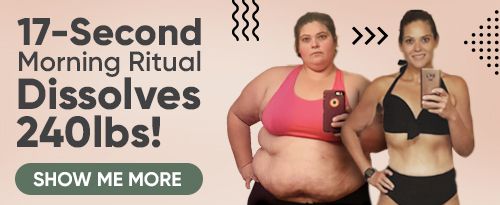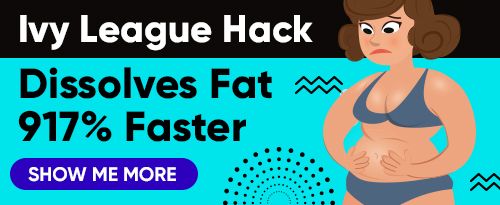You shower every day, wash your hands regularly, and brush your teeth—so your hygiene is fine, right? Maybe not. Many people unknowingly make critical hygiene mistakes that compromise their health, from using the wrong personal care products to skipping essential habits that prevent infections, skin issues, and even long-term health problems.
Good hygiene goes beyond just looking and smelling clean. It’s about protecting your body from harmful bacteria, viruses, and toxins lurking in everyday routines. Some habits you’ve followed for years might be doing more harm than good, while others—like the products you trust—could be exposing you to chemicals that disrupt your health.
Let’s break down what true hygiene looks like, expose the common mistakes people make, and reveal science-backed strategies to keep your body genuinely clean, healthy, and protected.
Hand Hygiene: The First Defense Against Illness
Your hands are the primary way germs spread from one surface to another. Every time you touch a doorknob, phone, or shopping cart, bacteria and viruses transfer onto your skin. Without regular handwashing, these microbes can easily enter the body when you touch your face, eat food, or rub your eyes.
Washing your hands with warm water and natural soap for at least 20 seconds helps break down harmful bacteria and viruses. Chemical-laden antibacterial soaps may seem like a good option, but they often contain triclosan and other harmful additives that disrupt the skin’s microbiome and contribute to antibiotic resistance. Opt for natural, fragrance-free soaps instead.
If soap and water aren’t available, an alcohol-based hand sanitizer (at least 60% alcohol) is a good alternative. However, avoid sanitizers with synthetic fragrances or harsh chemicals that can dry out and irritate the skin.
Be mindful of cross-contamination. Touching your phone after washing your hands can reintroduce germs, so regularly clean your devices with a natural, alcohol-based wipe.
Oral Hygiene: More Than Just Fresh Breath
Oral health is closely linked to overall health. Studies show that gum disease is connected to heart disease, diabetes, and even cognitive decline. Beyond brushing and flossing, what you put into your mouth plays a major role in maintaining a healthy oral environment.
Brushing your teeth at least twice a day with fluoride-free toothpaste is essential. Many conventional toothpastes contain fluoride, which has been linked to neurotoxicity and thyroid disruption. Instead, use a mineral-based toothpaste with ingredients like hydroxyapatite, which strengthens enamel without harmful side effects.
Flossing daily removes trapped food and plaque that a toothbrush can’t reach. Bacteria thrive in these tight spaces, leading to cavities and gum inflammation. Tongue scraping is another highly effective yet overlooked practice—removing bacteria buildup from the tongue not only improves breath but also supports digestion and gut health.
Swap out plastic toothbrushes for biodegradable bamboo alternatives. They’re just as effective but eliminate unnecessary plastic waste.
Shower and Skin Care: Balancing Cleanliness and Protection
A daily shower keeps bacteria, sweat, and pollutants from accumulating on the skin. However, over-cleansing or using chemical-heavy body washes can strip away the natural oils and disrupt the skin’s pH balance, leading to irritation, dryness, or breakouts.
Use mild, fragrance-free soaps that support the skin’s microbiome rather than harsh antibacterial cleansers. Pay special attention to high-bacteria areas like the underarms, groin, and feet. A gentle exfoliation with a washcloth or dry brushing can also remove dead skin cells and improve circulation.
Be mindful of what you apply post-shower. Many lotions contain parabens and synthetic fragrances that absorb into the skin and disrupt hormones. Instead, opt for natural moisturizers like coconut oil, shea butter, or aloe vera.
Avoid using chemical-based deodorants with aluminum, which has been linked to potential health risks. Instead, try natural alternatives made with baking soda or magnesium to neutralize odor.
Hair and Scalp Care: Keeping a Healthy Balance
Your scalp produces natural oils that protect hair follicles and maintain hydration. Washing too often can strip these oils, leading to dryness, while not washing enough can cause buildup and irritation. Finding the right balance depends on your hair type and lifestyle.
Use sulfate-free shampoos, as conventional shampoos contain harsh detergents that weaken hair over time. If you have dry hair, washing 2–3 times a week is enough, while oilier hair types may need more frequent cleansing. Adding apple cider vinegar rinses once a week can help balance scalp pH and reduce dandruff naturally.
If your water is hard (high in minerals), consider a shower filter to reduce buildup that can weaken hair and irritate the scalp.
Clothing and Bedding: The Overlooked Hygiene Factor
Dirty clothing and unwashed bedding create the perfect environment for bacteria, dust mites, and fungi to thrive. Sweat, dead skin cells, and natural body oils accumulate in fabric, leading to skin breakouts and potential respiratory issues.
Change clothes daily, especially undergarments, socks, and workout gear. When washing, avoid chemical-laden detergents that leave behind residues that can irritate the skin. Opt for fragrance-free, eco-friendly detergents with plant-based ingredients.
Sheets and pillowcases should be washed at least once a week to remove buildup from sweat and bacteria. If you have allergies or sensitive skin, consider using organic cotton or bamboo bedding to reduce exposure to synthetic dyes and chemicals.
Air-drying clothes outside can naturally eliminate bacteria and give fabrics a fresher scent without artificial softeners.
Nail and Foot Care: Preventing Infections and Odor
Fingernails and toenails harbor bacteria that can easily spread to the mouth or other parts of the body. Keeping them trimmed and clean reduces the risk of infections. Use a nail brush to scrub under nails while washing your hands, and avoid biting your nails, which introduces germs into your mouth.
Feet should be washed daily and thoroughly dried to prevent fungal infections. Moist environments, such as damp socks and shoes, create the perfect breeding ground for bacteria and fungi. Wear breathable shoes and moisture-wicking socks, especially if you sweat a lot. A natural antifungal powder, such as baking soda or arrowroot powder, can help keep feet dry.
Soaking feet in warm water with Epsom salt once a week helps eliminate odor, soften skin, and reduce the risk of infections.
Hygiene Beyond the Basics: Long-Term Health Impacts
Hygiene directly impacts long-term health. Chronic stress can lead to neglecting personal care, which in turn affects mental and physical health. A clean body and environment create a sense of well-being and confidence.
Poor hygiene has been linked to increased risks of infections, skin conditions, and even gut imbalances. The body eliminates toxins through the skin, sweat, and breath, so maintaining hygiene supports the body’s natural detox processes.
Good hygiene extends beyond the body. Keep living spaces clean by reducing chemical exposure—ditch synthetic air fresheners and cleaners, which release harmful VOCs into the air. Instead, use natural alternatives like vinegar, baking soda, and essential oils to clean surfaces effectively without toxins.
A Clean Body, A Clear Mind
The way you care for your body is an investment in your long-term health. Every choice, from the products you use to the habits you maintain, affects more than just how you look or smell. It determines your immune strength, skin health, and even your body’s ability to fight off disease.
Yet, hygiene is often approached as an afterthought—a set of mindless habits passed down without question. But what if some of those habits are doing more harm than good? What if your toothpaste, soap, or deodorant is exposing you to toxins daily? What if the things you don’t do are putting your health at risk?
It’s time to rethink hygiene—not as a checklist, but as a mindful practice. The smallest changes can protect you from illness, improve your well-being, and even extend your life.
Are you willing to break old habits and build new ones that actually serve your health?





